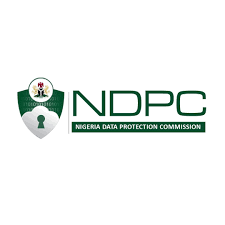- Agency Report
The Nigeria Data Protection Commission (NDPC) has called on Nigerians to always regard the National Identification Number (NIN) as an essential data for sustainable development.
Mr Babatunde Bamigboye, Head of Legal, Enforcement and Regulations, NDPC, said this in a statement in Abuja on Thursday.
Bamigboye noted that the alleged data breach by expressverify.com, a licensee of the National Identity Management Commission (NIMC) was investigating by the commission.
He said the licensee would undergo more scrutiny to ascertain its role of data breach in the processes of NIN verification.
“Following the reported incident of unauthorised National Identification Number (NIN) verification byd expressverify.com, investigation reveals that a third-party who, among others, was originally authorised to provide verification services to citizens.
“Although genuine businesses might have allowed expressverify.com to use its NIN verification credentials to conduct verification, but the circumstances surrounding this permission is still under investigation.
“At the moment, data processing by licensees generally are to be scrutinized and only those that are cleared based on credible evidence of regulatory compliance will be permitted to carry out NIN verification going forward.
“Members of the public should see NIN as an essential data for sustainable development,” he said.
He noted that that while trying to remedy the expressverify.com incident, NIMC, in line with established remediation protocols, barred all forms of access to its database.
According to him, barring is necessary, but barring all forms of access affected all genuine and crucial verification requests.
“After review, limited access has been granted to few establishments that are providing pivotal public services such as education and security.
“The ongoing investigation by relevant agencies, seeks to establish the medium through which expressverify.com obtained the credentials of bona fide third parties, and to determine the liability of persons involved in line with extant laws.
“While existing technical and organisational measures are being strengthened to ensure the protection of this data, it is important for citizens to ensure that they are not left unidentified in various frameworks for development.”
“It is equally important to be vigilant when sharing personal information on various online platforms,” Bamigboye said.
According to him, trainings will be conducted to ensure that personnel and licensees are abreast of the duty of care and the standard of care mandated by the Nigeria Data Protection Act, NIMC’s Privacy Policy and other relevant regulatory protocols.


